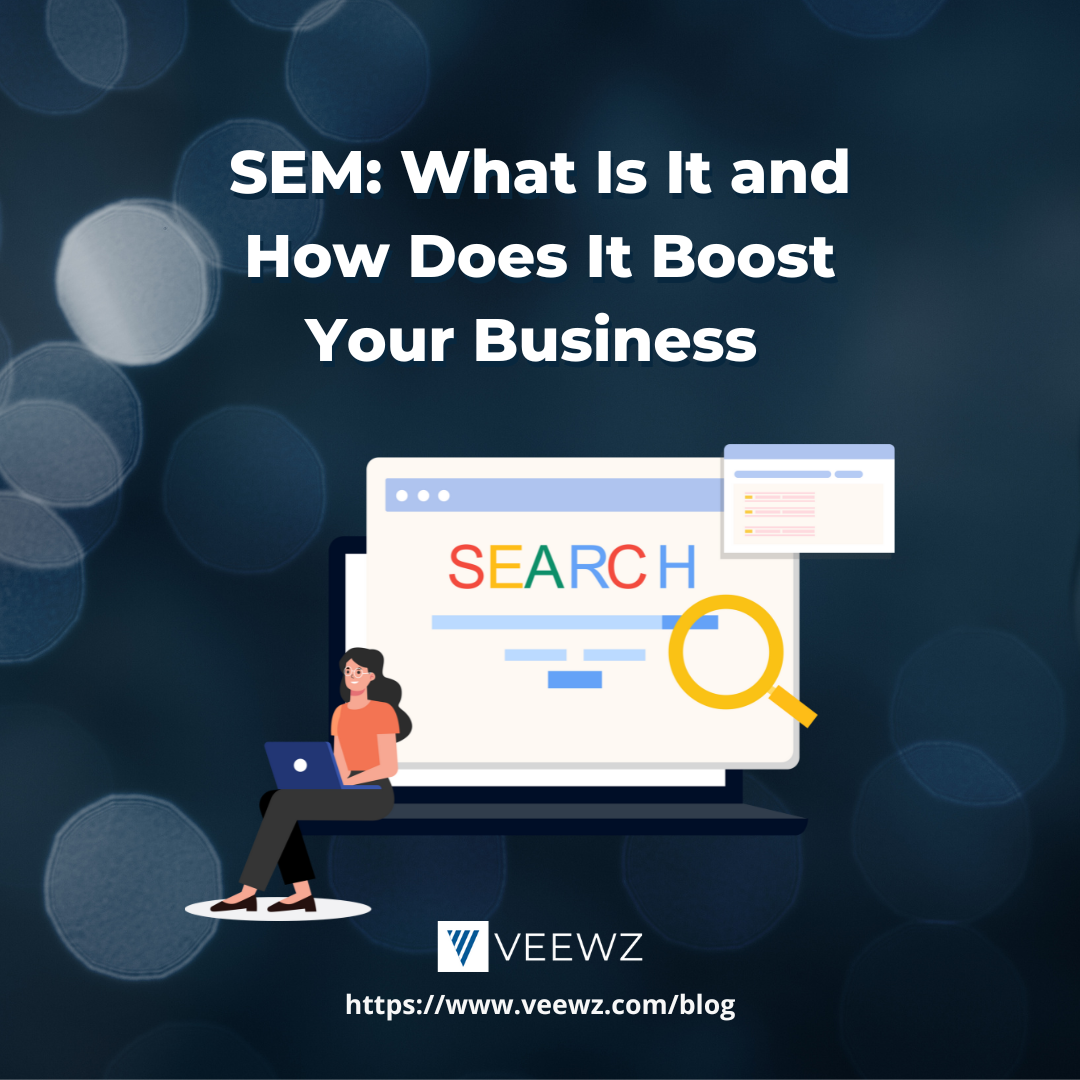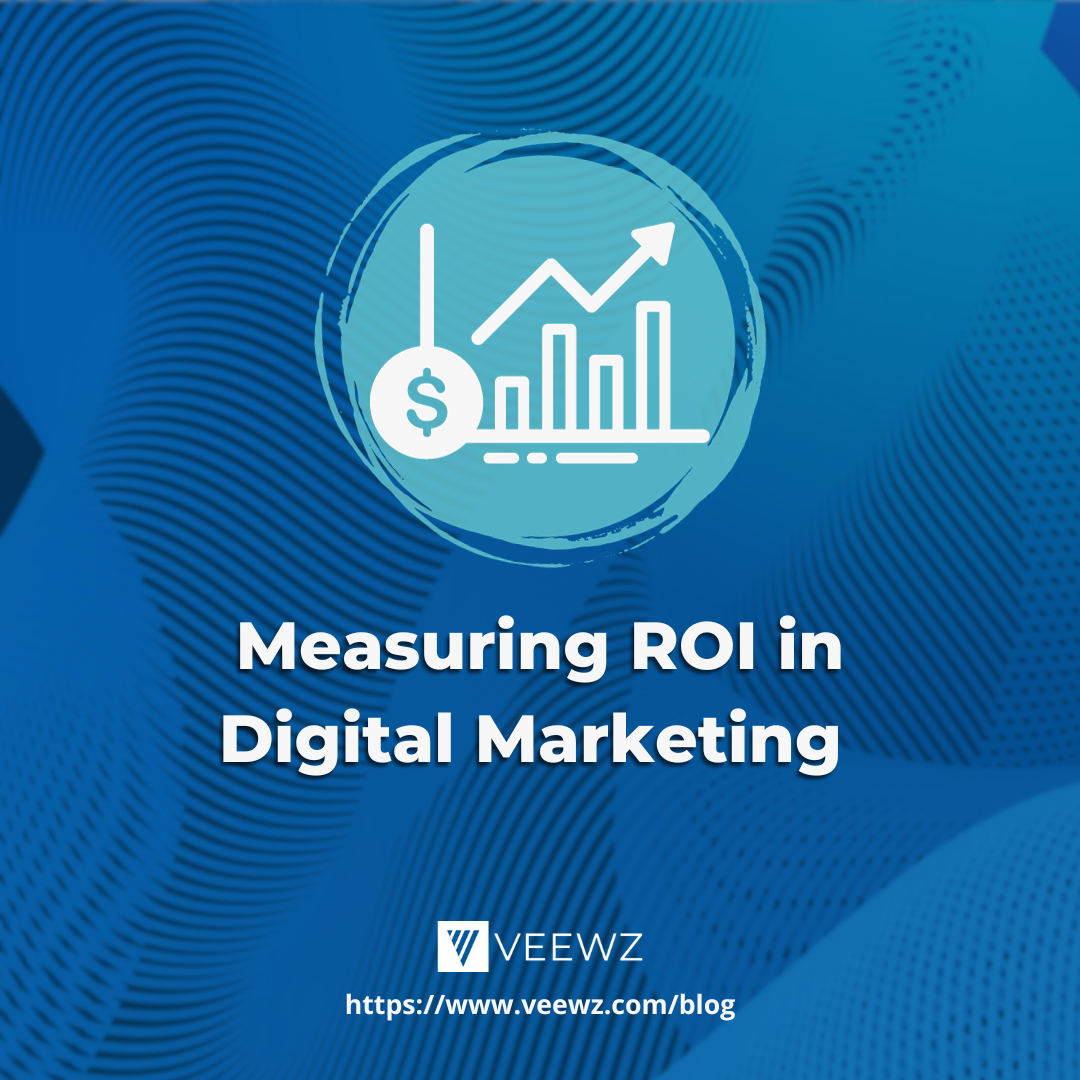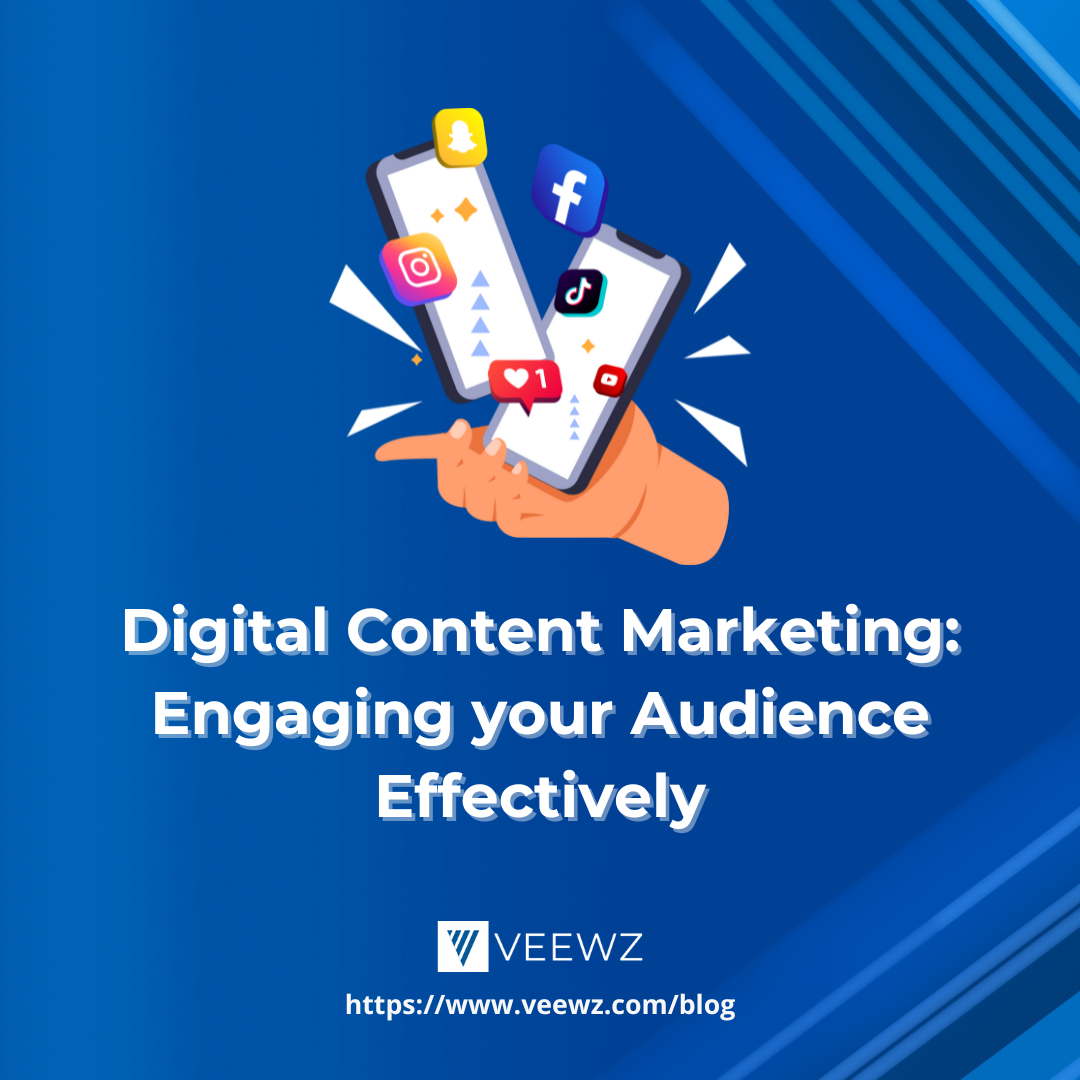
In today’s digital world, marketing plays a key role in promoting a business. No matter if it’s a startup, small business, or a large corporation, digital marketing is an integral part of their marketing tactics. Moreover, traditional marketing is now replaced with newer concepts, including Content Marketing.
Content Marketing is a form of advertising that is used to share useful information or knowledge to help the audience. Thus, it is widely used in businesses of all sizes and includes many other types of marketing as well.
Let’s discuss what Content Marketing is and its elements, and how it affects your business.
What is Content Marketing?

Content Marketing is the process of using different platforms to connect with your target audience. It encompasses planning, creating, distributing, sharing, and publishing content via different platforms. So, the content can be anything from the following:
- Videos and images on social media
- Blogs
- Websites
- Podcasts
- Apps
- Press releases
- Print publications, and much more
Content Marketing is used to increase brand awareness, website traffic, sales, engagement, and customer loyalty. It focuses on creating relevant and engaging content so a brand can build trust and a positive image. Hence, it plays a huge role in connecting businesses to consumers.
Types of Content Marketing
You can choose from a wide variety of Content Marketing options for your strategy. Here are some of the most common types of Content Marketing:

1. Social Media Content
Undoubtedly, we live in a time where social media is the main form of communication. With billions of users available online, it is easy to understand why businesses opt for social media marketing.
You can use different platforms and pieces of content to target audiences of different traits. Every social media platform has its pros and cons. However, you can easily find one that aligns with your Content Marketing strategy.
2. Infographic Content Marketing
Infographics are informational images and charts that show data in an easy-to-understand way. With a combination of words, sentences, charts, and images, infographics are best to educate your audience. They are especially useful for complex topics and educational data.
3. Blogs
One of the leading types of Content Marketing is blogging. It allows you to share your creativity, knowledge, and information with other people. No matter what topic or industry you belong to, you can write any blog on it to educate your target audience or help make a decision.
Blogs are also used to promote the brand’s products or services. With the use of links and calls to action, they help you achieve your marketing goals.
4. Podcasts
Since most of the time, people are on the move, podcasts are a great way of connecting to them. A lot of people listen to podcasts while driving, working, commuting, or studying. Thus, you can use them for your business marketing as well.
Podcasts are a great way of sharing creativity and ideas with the listeners. Moreover, you can produce them in a series of episodes and also add advertisements to them. You can also invite guests to talk about a certain topic.
5. Videos
Video marketing is one of the leading forms of Content Marketing. Most people prefer watching videos over reading textual details of a product or service. The visual element in videos makes them easier to understand. Also, it can be a great way of boosting conversions, engagement, and website traffic.
There are multiple ways you can use video marketing for your business. With product videos, unboxing videos, behind-the-scenes, or testimonial videos, you can keep the audience engaged. Moreover, the versatility of videos is remarkable. You can use them on the website, social media pages, and even email marketing.
6. Paid Ads
With the rise in social media users, online ads are also gaining popularity. Also, you can laser-target the audience you want to connect to. With better control of the audience, target, and budget of your ads, you can easily benefit from paid ads.
However, paid ads are not limited to social media. You can advertise your business in search engine results, mobile apps, websites, landing pages, and sponsored content, etc.
Why is Content Marketing important?
Content Marketing is an inevitable part of every business. Also, it’s not just about showing your presence to the online users, but it also benefits your business in many ways. Here are some of the reasons why Content Marketing is important:

- It educates your leads and potential customers about the products and services offered by your brand
- Content Marketing helps in boosting conversions and retaining old customers
- It lets you build a deeper connection with the customers and increase brand loyalty
- It helps your customers understand how your product or service can help them or solve their problem
- With Content Marketing, you can build a community around your brand and use it to reach a wider audience
What is Content Marketing Strategy?
Content Marketing strategy is what guides your content development. It helps you control every aspect of the content creation process. The goal of a Content Marketing strategy is to make sure that your brand achieves the desired results with its Content Marketing efforts.
With a better Content Marketing strategy, you can better target your audience, create relevant content and reach business goals faster.
Here are some of the questions to answer when making a Content Marketing strategy:
- Who is the target audience of your content?
- What pain point are you addressing through your content?
- How will you use the content to show the uniqueness of your brand?
- What type of content will be best suited for your chosen target audience?
- Which platforms and channels are you going to use for content marketing?
- How will you be managing the content creation and sharing process?

However, Content Marketing strategy is not to be confused with content planning. This is because the strategy focuses mainly on the “why,” whereas the content plan focuses on the “how.”.
What are the elements of Content Marketing Strategy?

To develop an effective Content Marketing strategy, there are 10 essential elements to use. These include the following:
- Brand identity guidelines - personality, voice, language, and tone of your brand
- Marketing goals and objectives - Key Performance Indicators (KPIs) that determine your marketing goals
- Customer research and audience profiles - Profiles, traits, and demographic information of your target audience
- Market research - How the market changes
- Customer Journey map - What exactly does the customer expect from your brand, and how will you achieve it?
- Content-market fit - How your content will add value to the industry.
- Resource assessment - What to create, how to do it and how to strategize content creation?
- Several types of content - Producing content to post on different platforms
- Content calendar - What to post, where to post, and at what time.
- Continuous iterations, operations, and analysis - Update the plan and test new things.
Why do I need a Content Marketing Strategy?
With the rise of the internet, the way we make decisions and research products or services have also changed. Thus, it has become quite easier to research anything online. As a result, the audience is now more informed and makes better decisions.
In such cases, it is important that your brand stands in the spotlight and shares information that benefits the audience. And this can be done through Content Marketing. With an effective content marketing strategy, you can be the expert who helps others understand what your business is about.
In short, a Content Marketing strategy gives you the ability to control how new or existing customers view your brand. Additionally, you will see the following benefits from a content marketing strategy:
- A clear idea of metrics that work the best for your brand
- Improved Return On Investment (ROI) on your Content Marketing efforts
- Bespoke and tailored content that fulfills the needs of different segments of your target audience
- A detailed guideline on how you can repurpose or improve your existing content to reach a wider audience
- Different ways to get the most out of your content
- Better long-term planning that will enhance your marketing effort
- Improved ways of using social media and content development for your marketing purposes
- Positive image and better reputation of your brand
- Generating more leads
- Getting a higher conversion rate
How to develop an effective Content Marketing Strategy

Just as with everything else, Content Marketing strategy also needs some effort. So, here are the steps to follow to create an effective Content Marketing strategy:
1. Set SMART goals
The first part of the Content Marketing strategy is to list out the goals you want to achieve. However, these aren’t just simple goals. They are SMART goals, linked to your business objectives. These goals will complement your marketing decisions as well.
If you’re wondering what SMART goals are, take a look here;
- Specific - Set a specific number with a real deadline
- Measurable - Make sure that your goals are trackable
- Attainable - Ensure that the goal is possible to achieve
- Realistic - Be honest in terms of your capabilities and hurdles
- Time-bound - Set a deadline for each goal
2. Set your KPIs
The next step is to set the key performance indicators (KPIs) for your SMART goals. These KPIs will help you determine how well you are performing. However, keep in mind that KPIs are used to measure the most impactful indicators.
3. Choose a type of content
As discussed before, there are many types of Content Marketing. So choose the one that sits well with your goals and the target audience. The elements of Content Marketing strategy will help you with this decision.
4. Choose your content channels.
Once the content type is finalized, it’s time to choose platforms and channels to use. So, decide where and how you will be sharing the content. Some content types have only one suitable platform, while others may be more versatile and used in many channels.
5. Set a budget
This is the important part. Here, you need to estimate how much the process will cost and set your budget accordingly. Keep in mind that you might need to buy some software or services in some cases. Moreover, some tasks might even require you to hire a professional or pay for ad space. So, set the budget accordingly.
6. Create and distribute the content
Once all the planning related to content is done, the next step is to create and share it. Make sure that you create the content well before its deadline so you can change or update it if needed.
It is better to use a social media calendar to schedule and manage your posts and content. Or you can even hire a social media management agency to do this for you.
7. Analyze and measure results.
Sharing the content is not the end of the process. Instead, you need to analyze the results of your marketing efforts as well. This helps you see if your efforts are directed in the right direction or not. Thus you can change and improve your marketing strategy accordingly.
This step requires you to compare your previously set goals and KPIs with the achieved results. Use the analysis to make better decisions and estimates in the next month.
Start today
If your business is not present online, it is time to start working. Effective Content Marketing can help you establish a strong online image and get ahead of your competitors. As a result, you will increase conversions and boost sales.
Now that you are aware of the importance of Content Marketing, the different types, and its benefits, it's time that you start on your content strategy.
We know how overwhelming this can get, especially if you’re not experienced in the digital marketing world. This is why agencies like Veewz exist; to help businesses like you. We can help you formulate an effective Content Marketing strategy from the start till finish.
You don't have to worry about anything when working with Veewz. Whether it’s content planning, creation, or distribution, our experts will do everything for you. So get in touch today and start walking your brand towards the spotlight it deserves.
About the Author
Related Article

SEM: What Is It and How Does It Boost Your Business

Measuring ROI in Digital Marketing

.png)












.png)























.png)

.jpg)




.jpg)





